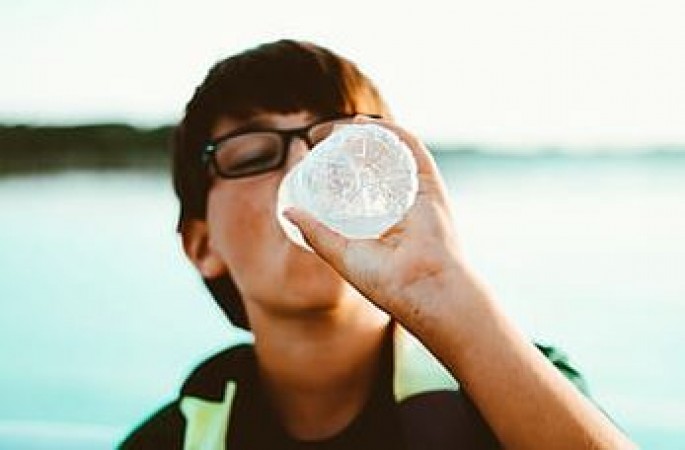
Water is an essential element for life, and proper hydration is crucial for maintaining optimal health and well-being. The human body is made up of approximately 60% water, emphasizing the significance of staying hydrated. In this article, we will explore the importance of hydration and its impact on the body, highlighting the various benefits and consequences associated with maintaining or neglecting proper hydration.
1. The Significance of Hydration
Hydration plays a vital role in maintaining the overall health and functioning of the human body. Adequate hydration is necessary for numerous physiological processes, including digestion, absorption, circulation, and temperature regulation. It is essential to recognize the importance of consuming an adequate amount of water throughout the day to support these functions effectively.
2. The Role of Water in the Body
Water serves as a fundamental component in our body, performing various critical functions. It aids in the transportation of nutrients, removal of waste products, lubrication of joints, regulation of body temperature, and maintenance of overall cellular balance. Without sufficient water, these vital processes can be compromised, leading to detrimental effects on our health.
3. Benefits of Hydration
3.1 Improved Physical Performance
Proper hydration is closely linked to optimal physical performance. When the body is well-hydrated, it can efficiently transport oxygen and nutrients to the muscles, improving endurance and reducing fatigue. Staying hydrated during physical activity is crucial for maintaining peak performance and preventing dehydration-related complications.
3.2 Regulation of Body Temperature
Water plays a key role in regulating body temperature. It acts as a coolant, enabling the body to dissipate heat through sweat production and evaporation. During physical exertion or exposure to hot environments, maintaining adequate hydration levels is essential to prevent heat exhaustion or heatstroke.
3.3 Enhanced Cognitive Function
Dehydration can impair cognitive function, leading to decreased focus, attention, and memory retention. Hydrating the body adequately ensures proper brain function, promoting mental clarity, alertness, and overall cognitive performance.
4. Effects of Dehydration
4.1 Decreased Physical Performance
Insufficient hydration significantly impacts physical performance. Dehydration can lead to reduced endurance, muscle cramps, dizziness, and decreased strength. Athletes and individuals engaging in physical activities must pay special attention to maintaining proper hydration levels to optimize their performance and prevent dehydration-related complications.
4.2 Impaired Cognitive Function
Dehydration negatively affects brain function. Studies have shown that even mild dehydration can result in cognitive decline, including difficulties with concentration, memory, and mood regulation. Staying hydrated is essential for maintaining optimal cognitive performance and overall mental well-being.
4.3 Negative Impact on Organ Function
Dehydration can have detrimental effects on organ function. Insufficient water intake can strain the kidneys, leading to reduced filtration and increased risk of kidney stones. Additionally, dehydration can impair digestive processes, leading to constipation and other gastrointestinal issues. Proper hydration is crucial for maintaining the healthy functioning of vital organs.
5. How to Stay Hydrated
5.1 Drink Sufficient Water
The primary and most effective method to stay hydrated is by drinking an adequate amount of water. The recommended daily intake varies depending on factors such as age, sex, physical activity, and climate. However, a general guideline is to consume at least eight 8-ounce glasses of water per day. Carry a reusable water bottle with you to remind yourself to drink water regularly.
5.2 Monitor Hydration Levels
Monitoring hydration levels is crucial, especially during physical activity or in hot weather conditions. Pay attention to the color of your urine, as dark yellow urine may indicate dehydration. Aim for a pale yellow or straw-colored urine, which is an indicator of proper hydration. Additionally, weigh yourself before and after exercise to assess fluid loss and replenish accordingly.
5.3 Consider Dietary Sources
Hydration doesn't solely rely on water intake but can also be obtained from various foods and beverages. Fresh fruits and vegetables, such as watermelon, cucumbers, and oranges, contain high water content and can contribute to overall hydration. Additionally, beverages like herbal teas and coconut water can provide an additional source of hydration.
6. Common Myths About Hydration
6.1 Clear Urine Indicates Optimal Hydration
Contrary to popular belief, clear urine is not always a sign of optimal hydration. While very dark urine is a clear indication of dehydration, clear urine may suggest overhydration or excessive fluid intake. Aim for a pale yellow or straw-colored urine as an indicator of a well-hydrated state.
6.2 Only Athletes Need to Hydrate
Hydration is essential for everyone, not just athletes. Whether you engage in physical activity or have a sedentary lifestyle, staying hydrated is crucial for maintaining overall health and well-being. Make hydration a priority in your daily routine, regardless of your activity level.
6.3 Thirst is a Reliable Indicator of Dehydration
Relying solely on thirst as an indicator of dehydration can be misleading. Thirst is a late-stage symptom of dehydration, meaning your body is already experiencing fluid loss. It is important to proactively drink water throughout the day, even when you don't feel thirsty, to maintain optimal hydration levels.
Hydration is of paramount importance for maintaining a healthy body and mind. From supporting physical performance and regulating body temperature to enhancing cognitive function, adequate hydration has numerous benefits. By staying hydrated through regular water intake, monitoring hydration levels, and considering dietary sources, we can optimize our overall well-being and prevent the negative consequences associated with dehydration.
Tips for Maintaining a Healthy Weight